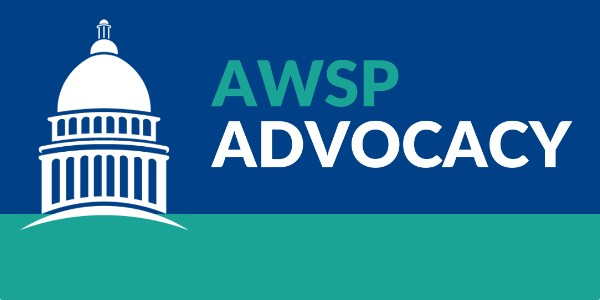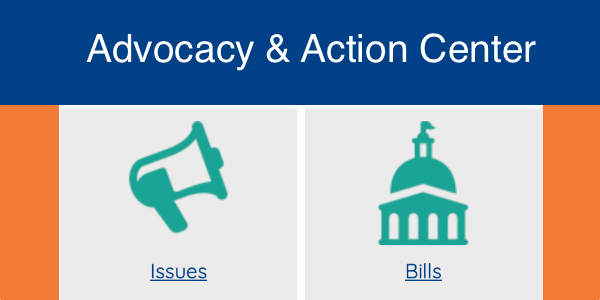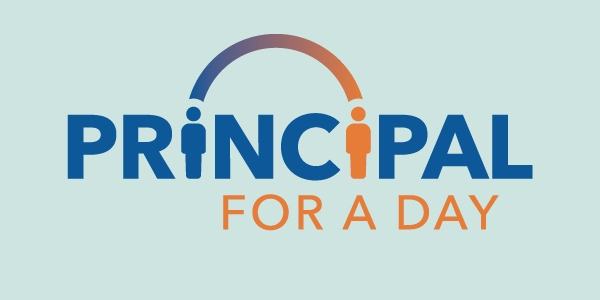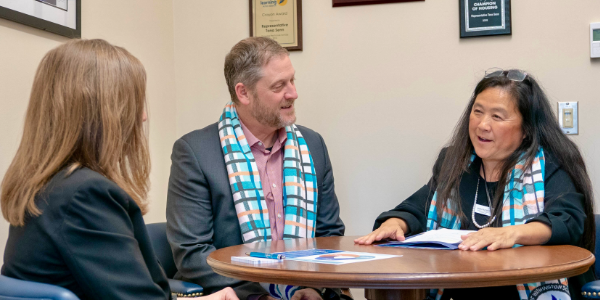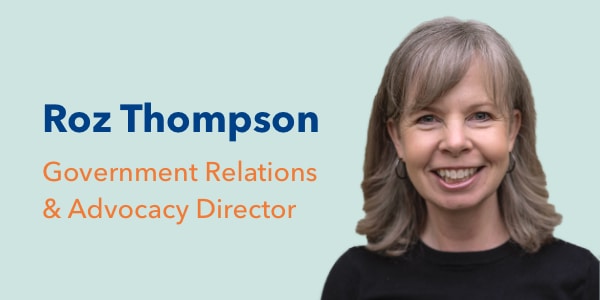The first major deadlines of this short session are February 3rd for policy bills and Feb. 7th for fiscal bills with the ultimate deadline for bills to make it out of their houses of origin being February 15th. As before, below is a brief report on selected bills that appear to have some support for advancing. Although any bill from the last or current session can always reappear. (See SSB 5326 below).
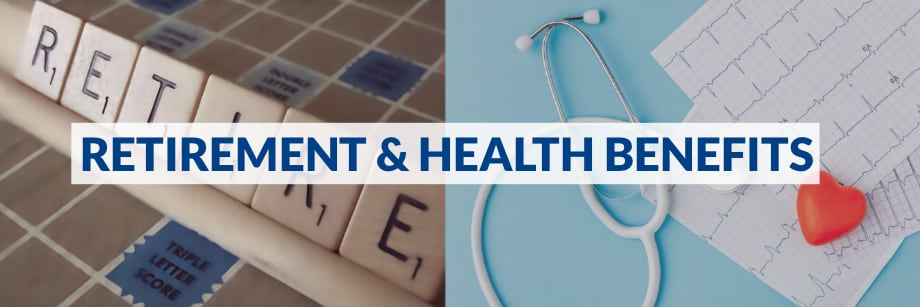
“Goals are dreams with deadlines.”
~ Unknown
“Deadlines just aren’t real to me until I’m staring one in the face.”
~ Rick Riordan, The Lightning Thief
The first major deadlines of this short session are February 3rd for policy bills and Feb. 7th for fiscal bills with the ultimate deadline for bills to make it out of their houses of origin being February 15th.
As before, below is a brief report on selected bills that appear to have some support for advancing. Although any bill from the last or current session can always reappear. (See SSB 5326 below).
Retirement Related Proposals
SHB 1699 | Permitting individuals retired from the public employees’ retirement system, the teachers’ retirement system, and the school employees’ retirement system additional opportunities to work for a school district for up to 1,040 hours per school year while in receipt of pension benefits until July 1, 2025.
Comment: This bill passed committee and is now before Rules awaiting action. Two amendments were passed; one dealt with insuring that it applied to Plan 1 members; the other, was an addition of an emergency clause. With the addition of the emergency clause, if and when it passes both houses and the Governor signs, it will be in immediate effect. Swift passage of this is essential if it is going to help the current school year.
HB 1721/SB 5676 | Providing a benefit increase to certain retirees of the public employees’ retirement system plan 1 and the teachers’ retirement system plan 1.
Summary: This bill would provide a 3% increase not to exceed $110/month for TRS1/PERS1 Plan retirees. The Governor included this one-time increase in his released supplemental budget.
HB 1721 | The Rules Committee was relieved of further consideration and the bill was placed on the floor calendar for second reading. SB 5676 is Senate Rules awaiting action.
Comment: Passage of either bills seems certain. The question becomes, “Which bill will be the one that passes which chamber?”. The answer often comes down to egos. Who wants credit? And sadly, this battle can end up killing the bill as time runs out.
SB 5676/HB 1721 | Providing a benefit increase to certain retirees of the public employees’ retirement system plan 1 and the teachers’ retirement system plan 1.
Summary: See HB 1721 above.
HB 1752 | Adding a Roth option to deferred compensation plans.
Comment: The Rules Committee relieved it of further consideration. It has been placed on second reading/floor calendar awaiting action.
Other areas of potential fiscal impact (often, unfunded) to districts:
HB 1486 | Concerning qualifications for unemployment insurance when an individual voluntarily leaves work.
Comment: This bill expands eligibility to receive unemployment insurance benefits to those who voluntarily quit their jobs. Under current law, there are a limited number of circumstances when an employee can receive UI benefits after voluntarily leaving their job. Under the bill, a person would be eligible for UI benefits if they leave a job due to a family member’s death or need to care for a child or adult.
The Rules Committee was relieved of further consideration and this bill was moved to the floor calendar awaiting action.
HB 1613 | Concerning shared reporting responsibilities for both the paid family and medical leave and the long-term services and supports trust programs to clarify that information collected from employer reports shall remain private.
Comment: This bill is in House Rules.
SHB 1617 | Aligning state and school holidays. The legislature intends to clarify that Juneteenth, like all other state legal holidays, is a school holiday on which school may not be taught.
Comment: This bill passed committee and before Rules awaiting a move to the floor calendar.
SHB 1732 | This bill delays the start date for the premium assessments under the Long-Term Services and Supports Trust Program (LTSS Trust Program) from January 1, 2022, to July 1, 2023. Delays the date benefits become available under the LTSS Trust Program from January 1, 2025, to July 1, 2026. Allows individuals born before January 1, 1968, who do not meet the LTSS Trust Program’s vesting requirements, to receive partial benefits based on the number of years of premium payments. Requires employers to refund employees any LTSS Trust premiums collected before July 1, 2023.
Comment: This bill has been passed by both Houses and been delivered to the Governor.
ESHB 1733 | Establishing voluntary exemptions to the long-term services and supports trust program for certain populations. This bill establishes exemptions from the payment of premiums under the Long-Term Services and Supports Trust Program for certain veterans, spouses and registered domestic partners of military service members, nonimmigrant temporary workers, and employees who work in Washington and maintain a primary residence outside of Washington.
Comment: This bill has passed both Houses and is awaiting an expected signature from the Governor.
HB 1759 | Requiring school districts and other public education entities to make information from the department of health about substance use trends, overdose symptoms and response, and the secure storage of prescription drugs, over-the-counter medications, and firearms and ammunition, available through their websites and other communication resources.
Comment: This bill has been moved to Rules.
HB 1763 | Concerning injured workers’ rights during independent medical examinations. This bill allows an injured worker to make an audio and video recording of an independent medical examination (IME), and to have one person of the worker’s choosing present during the examination.
Comment: Scheduled for executive session on Feb. 2nd.
HB 1803 | Updating school district director compensation through the revision and preservation of a uniform compensation structure and an examination of future needs. Districts may compensate school directors up to $128 per board meetings or other services for the district. Reimbursable expenses will also include childcare.
Comment: This bill has been moved to Rules.
HB 1837 | This bill repeals the restriction on the regulation of work-related musculoskeletal disorders and ergonomics.
Comment: This bill has been sent to Rules.
HB 1900 | Improving school districts’ responses to complaints of discrimination, harassment, intimidation, and bullying. This bill directs the Office of the Superintendent of Public Instruction to update, and publicly post, model student handbook language to include information about policies and complaint procedures related to discrimination, including sexual harassment, and information about policies and complaint procedures related to harassment, intimidation, and bullying, as well as the overlap between the policies and complaint procedures. Requires that each school district to include the model student handbook language in any student, parent, employee, and volunteer handbook. Codifies an administrative rule requiring each school district and charter school to designate one person in the school district as the primary contact regarding compliance with state laws prohibiting discrimination in public schools.
Comment: A public hearing is scheduled for
Jan. 27th. Executive session has been scheduled for Feb. 3rd.
HB 1992 | Concerning vacation leave accrual for public employees. This bill increases the cap on accrued vacation leave for state employees from 240 hours to 280 hours. Removes limits on the maximum amount of sick leave a school district employee may accumulate or use for the purposes of unused-leave compensation. Requires school districts to establish an emergency leave pool for staff who become ill or need to quarantine.
Comment: This bill is scheduled for executive session on Feb. 1st.
E2SSB 5155 | Concerning prejudgment interest. This bill, as amended, starts interest running on a judgment entered following trial of the matter and arbitration awards for tortious conduct, other than medical malpractice claims, from the date on which the cause of action accrues for individuals and entities, but not public agencies. Starts interest running on a judgment for a medical malpractice claim from the date of entry of judgment.
Comment: This bill passed the Senate 31/18 and has been referred to the House Civil Rights and Judiciary Committee.
SSB 5326 | Concerning health and pension benefits for school bus drivers employed by private nongovernmental entities. This bill Provides that school districts may only enter into pupil transportation service contracts with nongovernmental entities that provide health and retirement benefit contributions to their employees equivalent to those received by school employees.
Comment: This bill was resurrected from last session and has been placed on the Senate floor calendar awaiting action.
SSB 5628 | Concerning cyber harassment, addressing concerns in the case of Rynearson v. Ferguson, and adding a crime of cyberstalking.
Comment: This whole area of internet ‘bullying’ either at or outside of school is a landmine of potential liability for districts. This bill has been moved to the Senate Rules.
SB 5539 | Concerning state funding for educational service districts. This bill requires that state funding be provided to each educational service district (ESD) for the employer cost of school employees’ benefits for employees of the ESD that are covered by collective bargaining.
Comment: It is scheduled for a public hearing before Senate Ways and Means on Jan. 27th.
SB 5562 | Concerning health care for non-represented employees of educational service districts. This bill requires that non-represented employees of an educational service district receive health care benefits through the Public Employees’ Benefit Board beginning January 1, 2024.
Comment: This bill is scheduled for a public hearing on Jan. 27th.
SSB 5564 | Protecting the confidentiality of employees using employee assistance programs. It is unlawful for an employer to obtain individually identifiable information regarding an employee’s participation in an EAP. Individually identifiable information gathered in the process of conducting an EAP must be kept confidential. An employee’s participation or nonparticipation in an EAP must not be a factor in a decision affecting an employee’s job security, promotional opportunities, corrective or disciplinary action, or other employment rights.
Comment: This bill is in Rules awaiting further action.
SSB 5649 | Modifying the Washington state paid family and medical leave act. This bill provides that an allowable purpose for family leave is any leave taken by an employee during the seven calendar days following the death of the family member for whom the employee would have qualified to take medical leave for the birth of their child or would have qualified for family bonding leave. Specifies that leave taken by certain employees in the first six weeks after giving birth must be medical leave, unless the employee chooses to use family leave. Expires the collective bargaining exception contained in the Paid Family and Medical Leave (PFML) program. Establishes an actuarial office within the Employment Security Department (ESD), which must report annually on the financial condition of the PFML program and requires ESD to report on specified fiscal areas of the PFML program. Requires ESD to publish a list of employers with approved voluntary plans on its website. Requires the Office of Financial Management to coordinate with another agency for actuarial services relative to the PFML program and report to the Legislature by October 1, 2022. Creates a legislative task force on PFML program premiums.
Comment: It has been referred to Senate Ways and Means for a public hearing.
SB 5835 | Concerning workers’ compensation. This bill provides the same percentages of the worker’s wages to be received by an injured worker for a permanent and temporary total disability whether a worker is married or unmarried. Removes the requirement that an injured worker be married to receive an additional $10 per month when the worker is receiving the minimum monthly payments for a permanent or temporary total disability.
Comment: It has been scheduled for executive session on Feb. 2nd.
SB 5873 | Concerning unemployment insurance, family leave, and medical leave premiums. This bill decreases the maximum Unemployment Insurance (UI) social cost factor for 2022 and 2023 (Approx. 33% decrease). Sets a maximum UI rate class for the purposes of the percentage of the social cost factor to be paid by small businesses in 2023. Decreases the Paid Family & Medical Leave employee premium rate, subject to appropriation.
Comment: Scheduled for executive session Jan. 31st.
Fred Yancey
The Nexus Group, LLC



